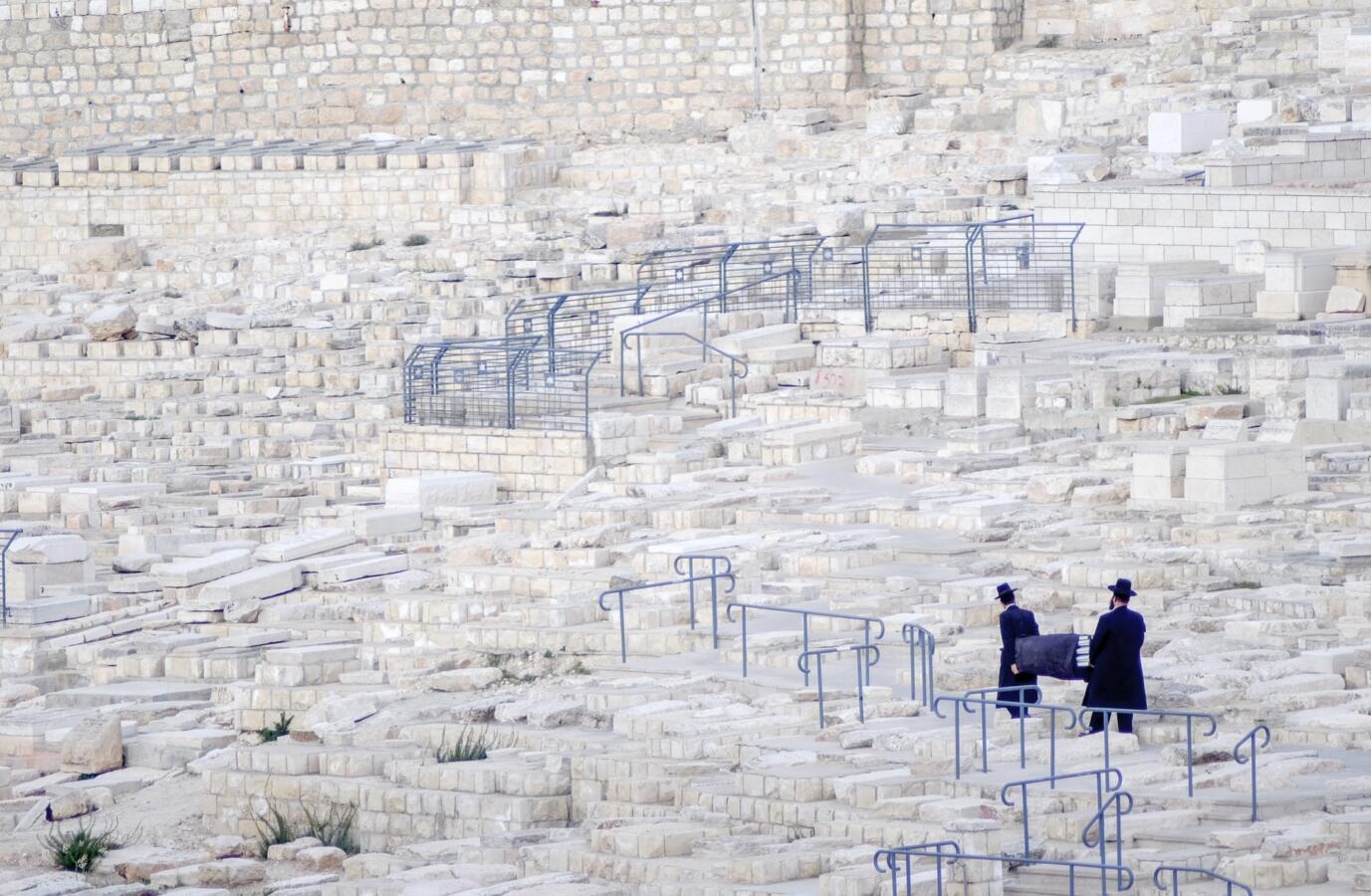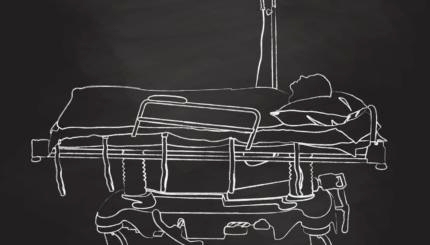Many traditional Jewish practices surrounding death, burial, and mourning–such as tearing one’s clothes when hearing of a death, respectful care for the body of the deceased, and burial in the ground–are reflected in the biblical text and in classical rabbinic literature. In the Jewish interpretive tradition, or midrash, a raven is said to have taught Adam and Eve how to bury their son, Abel, and God is depicted as lovingly attending to Moses at the time of his death.
Some basics of traditional mourning and burial practices:
• A person who hears of the death of a parent, spouse, sibling, or child is referred to as an onen (literally “someone in between”) until the funeral.
• The words “barukh dayan ha-emet” (“blessed is the true judge”) are uttered upon hearing the news, and a garment is torn.

Help us keep Jewish knowledge accessible to millions of people around the world.
Your donation to My Jewish Learning fuels endless journeys of Jewish discovery. With your help, My Jewish Learning can continue to provide nonstop opportunities for learning, connection and growth.
• The body of the deceased is washed and dressed for burial with great care by the hevra kaddisha (the sacred burial society).
• The funeral–which may take place at a funeral home, in a synagogue, or at the graveside–usually includes the short prayer El Maleh Rahamim (“God full of compassion”), as well as the recitation of psalms, and a hesped, or eulogy.
• The burial is framed by other liturgical elements, including the recitation of a special version of the Kaddish prayer, often thought of as the “mourner’s prayer.”
• Mourners and others participate in covering the casket with dirt. Mourners leave the graveside first, and others say to them the traditional words, “May God comfort you among all the mourners of Zion and Jerusalem.”
• Mourning takes place in several periods, each successively less intense. It includes shiva, seven days during which mourners are visited at home by family and community, and participate in prayer services held at home; sheloshim, the first 30 days of mourning, during which mourners return to their normal routine but refrain from many customary pleasurable activities; and, for those who have lost a parent, 11months of aveilut (mourning), during which is recited daily.
• A tombstone may be erected or uncovered at any time; an “unveiling” is often done a year after the death.
• The anniversary of death, or yahrzeit, is observed each year, and the deceased is remembered four times annually during Yizkor services (from the word “to remember”) on the holidays of Passover, Shavuot, Yom Kippur, and Shemini Atzeret. (In many communities, is also said on Rosh Hashanah, the second day of Sukkot, and the second day of Passover.)
Sign up for a Journey Through Grief & Mourning: Whether you have lost a loved one recently or just want to learn the basics of Jewish mourning rituals, this 8-part email series will guide you through everything you need to know and help you feel supported and comforted at a difficult time.
Looking for a way to say Mourner’s Kaddish in a minyan? My Jewish Learning’s daily online minyan gives mourners and others an opportunity to say Kaddish in community and learn from leading rabbis.




